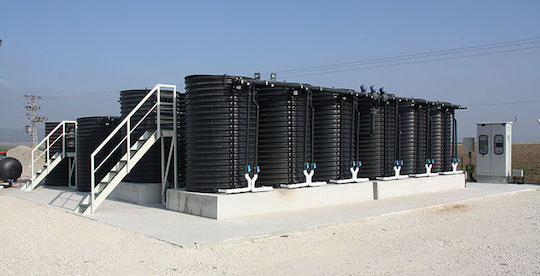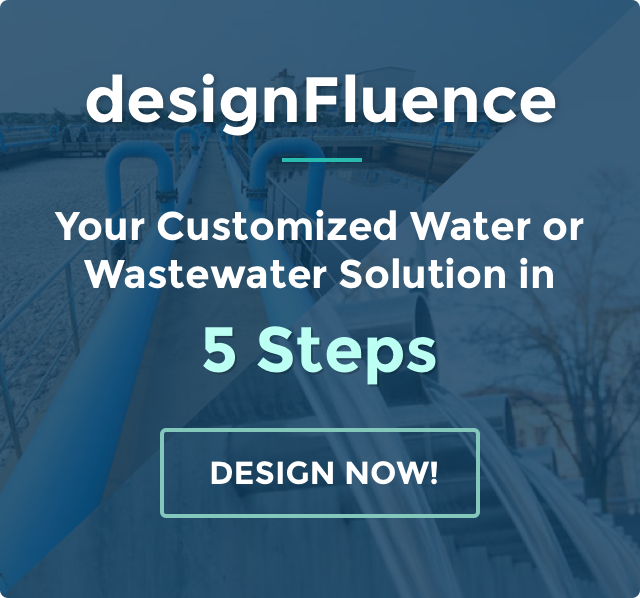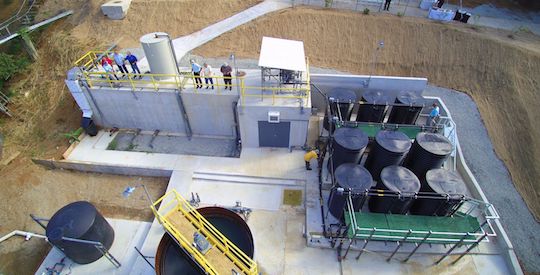Municipal Water & Wastewater Treatment
Fluence has decades of experience delivering sustainable water and wastewater solutions to communities large and small
Fluence has more than 30 years of experience in the design, construction, and operation of water and wastewater treatment plants for municipal clients, government entities, communities, emergency relief, and private use.
Fluence delivers decentralized, conventional, and custom-designed water and wastewater treatment solutions that provide a cost-effective way to produce drinking water from any source, or treat wastewater for safe discharge into the environment, for reuse in irrigation, or for industrial use.
Fluence is also the world leader in decentralized treatment solutions. Our solutions are plug-and-play, reliable, very cost-effective, and they can be deployed in record time.
Our plants are fully automated and are controlled by our innovative Smart Operation suite, which enables real-time monitoring and response, and operating costs optimization.
Our activities in the global municipal market include:
- Desalination
- Water treatment
- Wastewater treatment
- Water reuse
- Aeration and mixing equipment
- Remediation of lakes, ponds, rivers, and reservoirs
- Decentralized water and wastewater solutions, including NIROBOX™, MABR, EcoBox™, and our Tipton series of packaged plants
Featured Municipal Solutions
Potabilization
From conventional to state-of-the-art technologies, Fluence's expertise and references cover the following water treatment processes, and more:
- Drinking water
- Reverse osmosis for seawater and brackish water desalination
- Pretreatment Coagulation and flocculation
- Clarification
- Flotation
- Multimedia filtration (MMF)
- Activated carbon filtration
- Methane removal
- Biological filtration
- Arsenic removal
- Contaminant removal
- Denitrification
- Ultrafiltration
- Ultraviolet light (UV) disinfection
- Remineralization
- Softening
- Decentralized treatment
- Chemical disinfection
- Ozonation
- Removal of invasive species, such as Zebra mussels
Wastewater Treatment
Fluence has extensive expertise and references in wastewater reuse applications. Our tertiary treatment suite can process treated wastewater for reuse in irrigation, grey water, industrial use, and many other applications.
Our wastewater treatment solutions include:
- Aeration
- Sedimentation
- Conventional activated sludge process
- Biological nutrient removal
- Anaerobic digestion
- Tertiary filtration
- Water reuse
- Disinfection
- MABR
- Membrane bioreactors (MBR)
- Moving bed biofilm reactors (MBBR)
Decentralized Municipal Treatment Technologies
Here are a few of the technologies that make Fluence a go-to provider of municipal water and wastewater treatment solutions.
MABR Wastewater Treatment
NIROBOX™ for Desalination
Fluence's Nirobox is the most cost-effective solution to meet drinking water or process water needs for communities and businesses.
Tipton Packaged Wastewater Treatment Plants
Sustainable Treatment Solutions for Municipalities
Are you looking for cost-effective water or wastewater treatment solutions for your community? From large-scale plants to decentralized packaged and containerized treatment units, Fluence has decades of expertise providing sustainable solutions for municipal clients.
Contact our experts to discuss your specific project details, and learn how our municipal treatment solutions can help you meet your goals.
MUNICIPAL TREATMENT CHALLENGES?
Featured Municipal Treatment Applications
Rural Communities
Whenever possible, it's economically efficient and sustainable to treat wastewater locally and reclaim it for irrigation or return it to nearby lakes and rivers. A low-cost, decentralized system allows rural villages and small towns to treat sewage from homes and businesses near the source, rather than collecting, storing, and transporting it for treatment.
A quiet, odorless, concealed decentralized plant is the most sustainable solution for rural villages and small towns. Fluence offers innovative wastewater treatment solutions that are energy-efficient, robust and reliable, and that deliver a high-quality effluent. These solutions are cost-effective, easy to operate, and can be monitored remotely.
Effluent reuse for irrigation is a significant component of the integrated management of water resources. It replaces a portion of the water extracted from rivers and reduces the amount of pollutants discharged into our waterways.
Reusing treated wastewater ensures a reliable water source independent of seasonal drought and weather variability, and covers peaks in water demand. This continuous water supply lowers the risk of crop failure and lost income.
Nutrients in wastewater can be exploited to reduce the need for additional fertilizers, resulting in environmental benefits and savings for farmers, and a lower investment for further wastewater treatment.
For rural communities, decentralized treatment is:
- Cost-effective
- Quiet, odorless, and easily concealed
- Simply operated and remotely controlled
- An independent water resource for irrigation or reuse

Housing Developments
Treating the wastewater in a decentralized treatment plant makes economic and ecologic sense. Fluence's MABR, a fully automated and odorless treatment solution, is a perfect fit for new developments. A local MABR treatment facility can turn wastewater into a new source of quality water suitable for irrigation.
Many residential developments wastefully use drinking water for landscaping, irrigation of parks and playgrounds, as well as for central heating and cooling systems.
A packaged plant can be installed to treat residential sewage for 500 to 5,000 families. It can operate for months with minimum supervision, saving on operational costs while supplying high-quality nonpotable water for landscaping and irrigation use.
Benefits include:
- Savings on energy and water costs
- Savings on construction of water mains
- Compliance with treatment regulations
- Reduced environmental footprint


